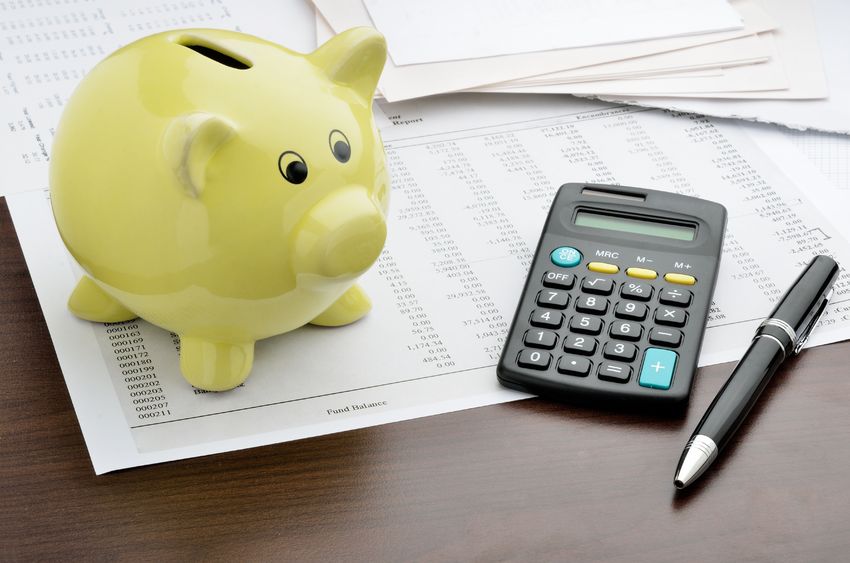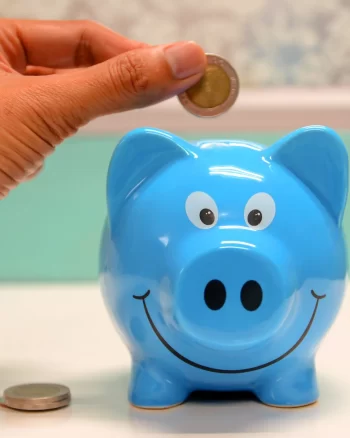 It’s easy to look at people you perceive to be more successful and think that they’re just lucky. That’s hardly ever the case.
It’s easy to look at people you perceive to be more successful and think that they’re just lucky. That’s hardly ever the case.
Where you see success, often discipline, sacrifice, patience, and hard work have paved the way.
And maybe this sounds a little arrogant but I’ve always believed that if someone else can achieve something, then I can too. Sure, it’s not going to happen overnight and sometimes the work is far more than I’m willing to commit, BUT if someone else has done something, I know that I can do it as well.
I believe the same for you.
If you’re serious about getting ahead financially, breaking the paycheck to paycheck cycle, becoming debt free, or building up a serious cash buffer, all of those things are more than possible.
(Remember if other people have done it then you can do it too. Make that your motto.)
Here are some practical steps you need to take if you’re serious about getting ahead this year.
Reframe the Way You Think About Money
Take the emotion and the power out of money and look at it for what it truly is.
Money is a tool. It’s a means to build the life you love. When you start looking at money as the emotionless object that it actually is you can get a better grip on your finances.
Map out all of your goals for the year and then take a good hard look at your spending. Is the way you’re using your money reflective of your goals? If not, make some changes.
Start looking at your finances like a business. You’re the CEO. Make a plan for your money and allocate certain percentages toward certain needs. Obviously, you’re going to have to cover the necessities like housing, transportation, food, and utilities. But once those necessities are covered how will you direct your money?
If you’re living paycheck to paycheck here’s the order of operations I’d focus on:
- Save an emergency fund with three months worth of expenses while still meeting all of your other obligations including debt repayments. Once you build up a savings buffer you’ll feel a huge sense of relief and will be able to cover minor inconveniences. After you have decent savings then start working on paying your debt down.
- Start paying down consumer debt. After you’ve got your savings under control start paying down your consumer debt. Popular methods are the debt snowball (my personal favorite) where you pay off your debts from smallest balance to highest balance. Or, the debt avalanche, in which you pay off your debts from highest interest rate to lowest interest rate.
- Work toward other goals. The reality is that it may take you anywhere from a few months to several years to pay off your consumer debt, depending on how much you have and what your current income and expenses look like. Once your debt is paid off you should start working on other financial goals like saving for retirement, investing, and anything else your heart desires.
Just remember, you are the one in control of the money that comes into your hands. Money does not control you.
STOP Relying on Will Power……….

Stop it, already! Willpower is not enough. That’s why creating habits and taking advantage of automation is so crucial. Relying solely on willpower is a recipe for disaster. (Which is why so many dieters fail.)
Set your system up and stick to it. Automate everything you can:
Credit Card Minimum Payments: If you routinely forget to make your credit card payments on time have them set up to automatically make the minimum payment every month. You can always go back and pay extra but at least this way you won’t be hit with penalties and late fees.
Your Savings: No matter what you are saving for you need to automate it. My savings would be nowhere near the amount they are if I didn’t have them automatically deposited. Pick a certain amount each month or each week to have transferred into an online savings account. (Even if you can only do $5/month I want you to do it.)
You can open an online savings account through a place like Discover Bank and set up contributions that come from your checking account. The beauty of an online savings account is that the money takes a couple of days to transfer back to checking. This means you can easily access your money but you will not be able to spend it on impulse.
Discover is currently offering 0.95% APY on savings account, which is a very competitive rate and about 5 times as much as the national average. You can open an account here.
Investments and Retirement Accounts: If you’re living paycheck to paycheck you need not even worry about investing at this point. Focus on building up an emergency fund and then paying off your debt. After you gain some financial stability come back and automate your investments.
Fix the Income Gap
I ran across a statistic the other day that I had never read before. It completely shocked me…………
According to the Social Security Administrations Wage Statistics:
- 51% of American workers earn less than $30,000 per year
- 67% of American workers earn less than $44,000 per year
Depending on where you live, your marital status, and the size of your family, it’s going to be hard to make significant progress on your financial goals if you’re making less than $30,000 per year.
If you’re to the point where you’ve cut everything possible out of your budget and are still living paycheck to paycheck you’ve got to do something about your income situation.
Here are some ideas:
- Switch jobs – start looking for a job that pays better. (Just don’t quit your old job until you have something lined up!)
- Create a job – look for a way to make money that aligns with your current skills. (Check out the ideas here and here.)
- Work more hours – if you like your current job and are able to up your hours try that until you get your savings established.
Experiment until you find a way to bring more money in.
Go All In
There’s a lot you can do in a year. If you’re serious about getting ahead in 2016 focus your efforts on one goal until you complete it.
Start by setting a target for an emergency fund and put every extra dollar you can into that savings account until you hit your goal. If you work hard (and smart) enough you can break the paycheck to paycheck cycle before the year is over.
A big thanks to Discover for sponsoring this post. All opinions are my own.



Great tips! I really like your idea on concentrating on one goal, such as creating an emergency fund, until you complete. This year I plan to get serious on becoming a freelance writer and build up a emergency fund because you just never know. This was a wonderful post!
Thank you, Cat! For me having an emergency fund was a complete game changer. Once I had it at a level I felt comfortable with stress just started melting away and I was able to focus more on doing the things I wanted vs. what I felt I had to do. (Like taking the chance with self-employment for example.) Good luck with your goals this year!
nice advice’s,
you are absolutely right how necessary saving is,
but what happens to me, I am putting money in saving account sometimes 20$ sometimes 200$ depend of situation and monthly income, every once a time in year i need to clean up my savings account since i live in old house with bad electric installation, plumbing, roofing which I must repair, and never had enough to repair all what is necesary.
Maybe you can start saving specifically for those repairs as well as saving an emergency fund – half of your savings going into the emergency fund and half going toward house repairs? There have been a few times this year where I’ve had to dip into my savings to pay for medical bills that I thought would be covered by insurance. When that happened I just focused on building it back up and was thankful that I had the money in there.
Great points, Alexa. The key here is to realized that you can do things through will power but why would you want to? It’s not going to be as effective or as easy as if you put systems in place (i.e. implement better habits). The more consciously you do this, the more likely you are to continue to increase supportive habits, too. It’s a win win!
Yes, definitely! There’s no way my savings would be where it’s at if I didn’t automate it. As long as it doesn’t hit my checking account I don’t feel compelled to spend it 🙂
Great article! We are really buckling down this year. Our oldest just turned four and already I’m freaking about college (if he chooses to go). I decided to use the 52 week savings plan to drive my side hustle goals. So far so, good. 🙂
I like that idea! I save a fairly small amount toward my girls college each month. I have mixed emotions on college at this point.
Thanks Alexa for kiccking our butts in gear. I am definitely serious about paying off my college debt to the point where we are living on little over half of our income. We also have a few thousand in an emergency fund with tbe intent of growing it more as the debt is paid. It just takes determination.
Wow that is awesome! Congrats on doing so well with your debt pay off. It sounds like you definitely have the determination to make it happen 🙂
Automation is the key for people who get easily sidetracked (self included). When it’s all set, you don’t have to make any willpower efforts anymore, it’s all done by default. And earning a side income is indeed the key to really boost debt payment and increase savings.
Definitely agree. I have certain income streams for bills and certain ones for savings. For me it’s fun to try and grow those ones that go straight to the savings account!
I use to be that person that did not believe that being successful was for me. But once I decided to do it and break things down into smaller steps it became more feasible and doable for me! Great encouragement.
I am right there with you. But then once you go for it and make a little progress a whole world of possibilities opens up!